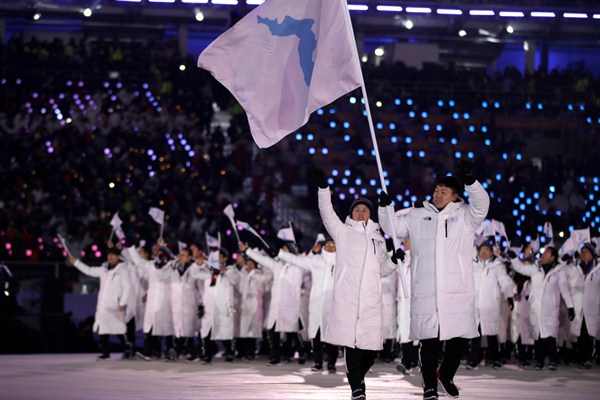As the athletes marched in for the closing ceremony of the 2018 Winter Olympics on Sunday, it was hard to find the blue-and-white Korean unification flag. Rather than marching under that flag and in matching white uniforms, like they had for the opening ceremony, athletes from the Republic of Korea and the Democratic People’s Republic of Korea waved their respective national flags and wore separate outfits. Was the spirit of unity from two weeks ago already gone?
The diplomatic work to get the North Koreans to the Olympics as part of a single Korean delegation should not be confused with the heavy-lift diplomacy it would take to actually advance real reconciliation between the two halves of this divided peninsula. It was, nonetheless, a real achievement that reflected the desires of the Olympic organization and the current political leadership of Seoul. Having North Korea participate was important to assure visiting delegations and fans that the recent tensions over Pyongyang’s defiant advances in its nuclear and missile capabilities would not be a dark cloud over the games, or even create real security risks.
But it seemed that the symbolism of a unified delegation—not unprecedented at Olympic Games—played to North Korea’s favor. South Koreans resented that their own athletes were sidelined to make room for the North’s less competitive women’s hockey players, for example. The arrival of a high-level political delegation from Pyongyang, and the presence of North Korean leader Kim Jong Un’s sister, Kim Yo Jong, gave the North an opportunity to look almost normal in the eyes of the world media. Kim Yo Jong’s visit to the South was the first by a member of the Kim dynasty since the Korean War.

